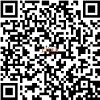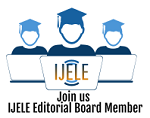(2) Rodney Joe Phiri
*corresponding author
AbstractThis study aims to interrogate the adoption of the updated primary school curriculum in Zimbabwe to determine its implications for staff development and the delivery of quality education. The study adopted the qualitative paradigm and utilized the case study design delimited to five schools in the Hwange District of Matabeleland North Province in Zimbabwe. Purposive sampling method was used to identify participants, while Focus Group Discussions (FGDs) and Interviews were used as the research techniques meant for data generation. Consistent with phenomenological inquiries, data were analyzed through interpretive phenomenological analysis (IPA), while findings were presented in summarised prose form. The key findings of the study were that the adoption of the updated curriculum had necessitated the need for teachers' professional development to equip them with the necessary knowledge and pedagogic skills which they generally lacked considering that the teachers did not study new learning areas of the curriculum during their initial teacher training. Besides, there was a lack of knowledgeable and competent facilitators in the updated curriculum's new learning areas, hence needing staff development. The researchers concluded that the adoption of the updated primary school curriculum had been a major spur for staff development for teachers; hence, it brought a new trajectory where teachers' continuous professional development is necessary rather than an option if quality education is to be realized. The researchers, therefore, recommended that the Ministry of Primary and Secondary Education (MoPSE) should step up support for the professional development of teachers considering that the adoption of the updated curriculum has implications for the delivery of quality education in Zimbabwe
KeywordsSchool curriculum; Primary school educators; School staff development; Quality education
|
DOIhttps://doi.org/10.31763/ijele.v2i2.99 |
Article metrics10.31763/ijele.v2i2.99 Abstract views : 3491 | PDF views : 1012 |
Cite |
Full Text Download Download
|
References
[1] Zimbabwe MoPSE (2016). New Curriculum Framework: 2015-2022 Handbook. Harare: Government Printers, available at: mopse.co.zw.
[2] Chavhunduka, K. & Moyo, C. (2003). Practicality of exemplary curriculum implementation material. Harare: UNICEF, doi: 20.500.12413/5504.
[3] Dokora, L.D.K. (2015). MoPSE Ministerial Statement: Update on the Proposed Curriculum Framework for Primary and Secondary Education, 2015-2022. Harare: MoPSE, available at: Google Scholar.
[4] Shizha, E. & Kariwo, M.T. (2011). Education and development in Zimbabwe: A social, political and economic analysis. Boston: SENSE, doi: 10.1007/978-94-6091-606-9_1.
[5] Haralambos, M. & Holborn, M. (2011). Sociology: Themes and perspectives. London: Harper Collins, available at: Google Scholar.
[6] Gasva, D., and W. Moyo. "Teachers’ views regarding the adoption of the new curriculum in Zimbabwe: Fostering quality in education and/or national development needs." Scholars Journal of Arts, Humanities and Social Sciences 5, no. 5 (2017): 455-462.UNESCO Study (2011). Access to quality education. Washington-DC: UNESCO, available at: Google Scholar.
[7] Smith A. The influence of education on conflict and peace building, Background paper prepared for the Education for All Global Monitoring Report 2011 The Hidden Crisis: Armed conflict and education, Paris: UNESCO. UNESCO, 2010. 30 p, available at: Google Scholar.
[8] Verwimp, P. (2009). Measuring the quality of education: a case study of schools in rural Ethiopia. International Review of Education, 45(2), 167-196, doi: 10.1023/A:1003692908335.
[9] Abbott S, Guisbond L, Levy J, Sommerfeld M. The glossary of education reform. Retrieved from. 2014, available at: Google Scholar.
[10] McBrien, J.L. & Brandt, R. (1997). The language of learning: A guide to educational terms. Alexandria: VA ASCD, available at: Eric.ed.gov.
[11] Indiana Department of Education (2016). Definitions of terms. Indiana Accountability System for Academic Progress, 2010, available at: Doe.in.gov.
[12] Ellis, A.K. (2004). Exemplars of curriculum theory. Larchmount: NY. Eye in education, doi: 10.4324/9781315855318 .
[13] LD. Minister of Primary and Secondary Education Report to the 15th ZANU PF Conference. Harare: ZANU Pf. 2015, available at: Google Scholar.
[14] Rouse, Michael J. “Continuing Professional Development in Pharmacy.†Journal of Pharmacy Technology 20, no. 5 (September 2004): 303–6, doi:10.1177/875512250402000509.
[15] Glatthorn AA, Fox LE. Quality Teaching through Professional Development. Principals Taking Action Series. Corwin Press, Inc., 2455 Teller Road, Thousand Oaks, CA 91320-2218 (paperback: ISBN-0-8039-6273-8; hardcover: ISBN-0-8039-6274-6).; 1996, available at: Eric.ed.gov.
[16] Mukomana, S., Mangozhe, N. and Gasva, D. (2017). In pursuit of the successful implementation of the new curriculum in Zimbabwe’s primary and secondary schools. Scholars Journal of Arts, Humanities and Social Sciences, 5(9A) 156-164, doi: 10.21276/sjahss.2017.5.9.9.
[17] Belamy, C. (2010). The world’s children and status report on quality education. New York: UNICEF, available at: Google Scholar.
[18] W, Marimo ST. Challenges faced in the implementation of the Zimbabwe localised advanced level geography syllabus: A case of Gweru district high schools. Global Journal of Interdisciplinary Social Science. 2015;4(2):52-6, available at: Google Scholar.
[19] Liston-Heyes, C., Ceton, G. An Investigation of Real Versus Perceived CSP in S&P-500 Firms. J Bus Ethics 89, 283–296 (2009), doi: 10.1007/s10551-008-9999-2.
[20] Coombs PH, Manzoor AR. Hunter, Guy and Bottrall, Anthony F.(Ed.). Serving the Small Farmer: Policy Choices in Indian Agricultural Development, Reading University/Overseas, available at: Google Scholar.
[21] Dobrzański LA, Roszak MT. Quality management in university education. Journal of Achievements in Materials and Manufacturing Engineering. 2007 Oct;24(2):223-6, available at: Google Scholar.
[22] Fullan M. The new meaning of educational change. Routledge; 2007, doi: 10.4324/9780203986561.
[23] Carron, Gabriel, and Ta Ngoc Chau. "The Quality of Primary Schools in Different Development Contexts." (1996), available at: Eric.ed.gov.
[24] Cohen, Louis, Lawrence Manion, and Keith Morrison. Research methods in education. routledge, 2013, doi: 10.4324/9780203720967.
[25] Denzin, N.K. & Lincoln, Y.S. (2012). Strategies of qualitative inquiry. Boston: Sage, available at: Google Books.
[26] Crotty, Michael. The foundations of social research: Meaning and perspective in the research process. Sage, 1998, available at: Google Scholar.
[27] J, Goulding S, editors. Conducting small-scale investigations in educational management. Harper & Row; 1984, available at: Google Scholar.
[28] DEANNA KUHN (2007) Is Direct Instruction an Answer to the Right Question?, Educational Psychologist, 42:2, 109-113, doi: 10.1080/00461520701263376.
[29] Marshall, Catherine, and Gretchen B. Rossman. Designing qualitative research. Sage publications, 2014, available at: Google Scholar.
[30] Bailey, Kenneth. Methods of social research. Simon and Schuster, 2008, available at: Google Scholar.
[31] 31 Steinke, Ines. "Quality criteria in qualitative research." A companion to qualitative research 21 (2004): 184-90, available at: Google Scholar.
[32] Guba, E. G., and Y. S. Lincoln. "The evaluator as instrument: effective evaluation." (1981): 128-152, available at: Google Scholar.
[33] Fraenkel, Jack R., Norman E. Wallen, and Helen H. Hyun. How to design and evaluate research in education. Vol. 7. New York: McGraw-Hill, 1993, available at: Google Scholar.
[34] Patton, Michael Quinn. Qualitative research & evaluation methods: Integrating theory and practice. Sage publications, 2014, available at: Google Scholar.
[35] Bridget, and Cathy Lewin, eds. Research methods in the social sciences. Sage, 2005, available at: Google Scholar.
[36] Gasva, Douglas, and Wisdom Moyo. "The influence of sex and gender on english language and mathematics performance: the case of grade 6 pupils at selected primary chools in Hwange District in Matabeleland North Province of Zimbabwe." (2014), available at: Google Scholar.
Refbacks
- There are currently no refbacks.
Copyright (c) 2020 Douglas Gasva, Rodney Joe Phiri

This work is licensed under a Creative Commons Attribution-ShareAlike 4.0 International License.

International Journal of Education and Learning
ISSNÂ 2684-9240
Published by Association for Scientific Computing Electronics and Engineering (ASCEE)
W : http://pubs2.ascee.org/index.php/ijele
E : zalik@ascee.org

This work is licensed under a Creative Commons Attribution-ShareAlike 4.0 International License.





















